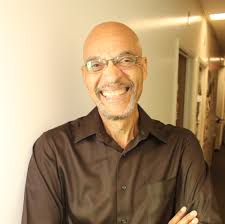The vote on the gay marriage ban in North Carolina's Halifax County drew some national ink. The County in Northeast part of the state is mostly rural and majority black. It backed the state's anti-gay marriage initiative by a whopping two to one majority. The anti-gay marriage vote there was taken as a jittery sign that some blacks out of pique over President Obama's gay marriage endorsement could punish him at the polls by staying home. That's a pipe dream. Blacks in Halifax County backed him in 2008 by an even bigger majority than they backed the anti-gay marriage ban. And they'll do the same again in 2012.
It's true that gay marriage has been an especially sensitive issue among blacks, especially black evangelicals, who insistently selectively cite Bible passages to crusade against gay marriage. And when that fails to sway anyone, some fall back on the bogus defense of the black family argument which supposedly is that the more blacks who openly choose same sex partners will be yet another wrecking ball tearing away at the fragile black family. This argument conveniently downplays or ignores the greatest and long standing destabilizers of black families--poverty, unemployment, grossly underfunded and underserved inner city schools, and skills training programs, disproportionately high incarceration rates among black males, and the still all pervasive workplace racial discrimination.
There have been instances where a larger than average number of blacks has backed anti-gay marriage bans in states such as Ohio in 2004 band California in 2008. This also drew a lot of attention. But in Ohio the same year blacks backed the ban they also gave then Democratic presidential candidate John Kerry running against President George W. Bush more than eighty percent of their vote. In 2008, blacks gave Obama more than 90 percent of their vote. In both cases, the blacks that voted for Kerry voted party loyalty first, and for Obama, voted both party and race loyalty.
The black vote in Halifax County where blacks backed the gay marriage ban by a 2 to 1 majority doesn't tell the whole story. If the ban had been on the state ballot four years earlier the proportion of blacks that backed it would have almost certainly been even higher. That would have mirrored national trends that showed then that black hostility to gay marriage was much higher than today. The most recent Pew Research Center poll in April found for the first time less than a majority of blacks said they opposed marriage between gays and lesbians. That's a double digit drop from the number of blacks opposed to gay marriage in 2008.
Gay marriage is really only a political worry, or more accurately, a political talking point now because Obama became the first sitting president to cautiously endorse gay marriage. And because his endorsement of it came right in the middle of a presidential election year. Before that polls showed that the issue of gay marriage wallowed at the bottom of the list of issues that worry voters the most. The runaway leader is jobs and the economy. The handful of black ministers that rushed again to quote Bible verse to denounce gay marriage were careful not to connect the dots from that to any vote against or even coolness toward Obama in November.
Obama's timing of his support of gay marriage won't work against him as some have worried. If anything, it works for him. The election is still months away, and the teeth of the campaign season won't come until after the conventions in August and September. Both Obama and Romney will hammer each other on jobs and the economy. This will effectively relegate the social or moral issues far to the back burner for most voters. And while hard core Christian evangelicals and ultra conservatives will saber rattle Obama with his stance on gay marriage, most voters will still gauge both contenders by which one they belief can do the best job in retooling the economy.
Black voters more than any other group have the biggest stake in this question and issue. Even as the jobless figures ticked downward in the first part of this year, black unemployment still hovered at the chronic double digit mark, and in many urban areas soared even higher. In some major cities, according to labor statistic reports the unemployment rate among young black males inched close to or even exceeded fifty percent. These men, their families, and advocates don't give a hang about what a president, or any other politician, has to say about gay marriage. Paying bills, putting food on the table, and trying to insure a viable future, is their main, if not sole concern.
The betting odds are that many of the same black ministers that voice concern in May about gay marriage will be the same ministers in the final run up days to the election that will be reminding or imploring their congregation to get out and vote, and they will not be telling them to vote for Romney. It's been that way before and during the times that gay rights and gay marriage became firebrand issues. It will be the same this election. That's why gay marriage won't cost President Obama black votes.
Earl Ofari Hutchinson is an author and political analyst. He is a weekly co-host of the Al Sharpton Show on American Urban Radio Network. He is the author of How Obama Governed: The Year of Crisis and Challenge. He is an associate editor of New America Media. He is host of the weekly Hutchinson Report Newsmaker Hour heard weekly on the nationally network broadcast Hutchinson Newsmaker Network.
Follow Earl Ofari Hutchinson on Twitter: http://twitter.com/earlhutchinson




